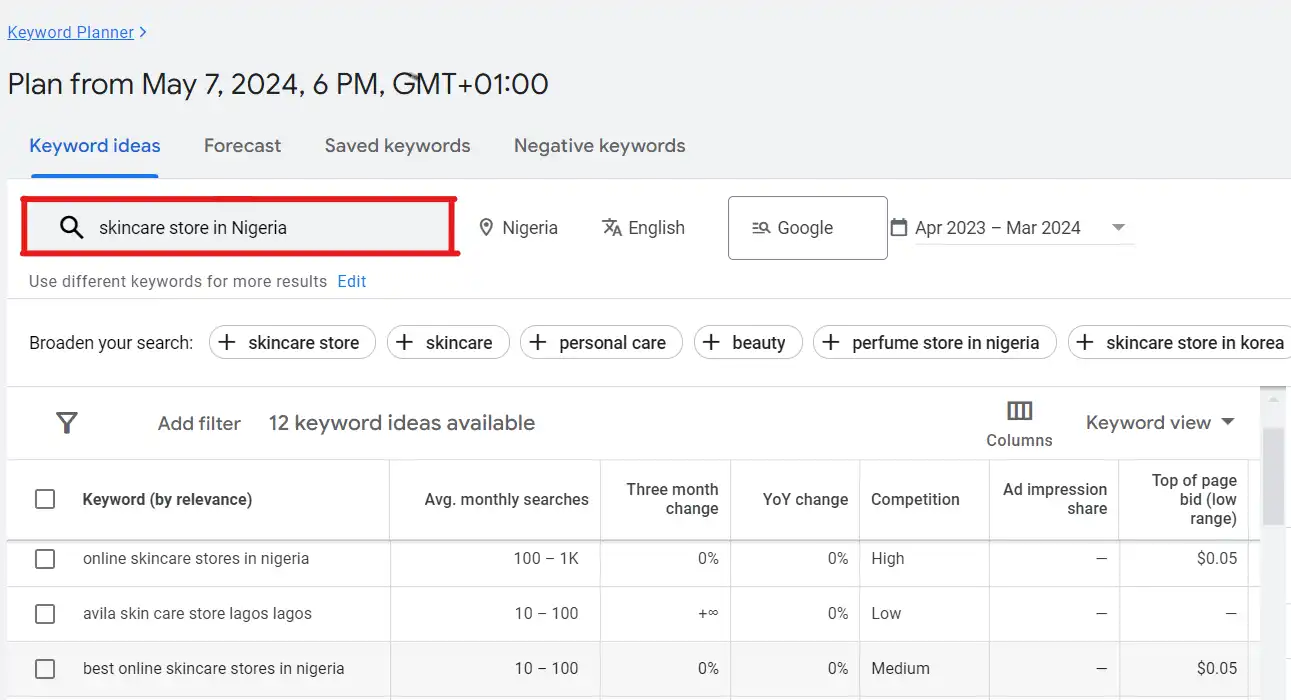Simply having a website isn’t enough anymore. As a small business owner, you know how important it is to get your name out there and attract new customers.
Moreso, with the increasingly competitive digital space many small businesses are using SEO strategies to get ahead. But diving into the digital marketing world, especially with key strategies like SEO, can feel overwhelming for those new to the game.
Don’t worry, why you might ask? Because we’ve got you covered.
In this post, we’ll break down the most important SEO strategies for small businesses, with key takeaways, and tips from experts for you to start implementing and help you get started.
So let’s jump right in!
The biggest thing small businesses need to focus on with SEO is relevance – creating content that’s highly relevant to your target audience and covering the topics they care about.
Search engines like Google, Bing, and Yahoo seek to provide users with the information they’re actively searching for.
So if the content on your website directly addresses the needs and interests of your audience, it becomes highly relevant.
This relevance is a key factor search engines consider when ranking websites in search results. The more relevant your content is, the higher your chances of appearing at the top of the search results page, where users are most likely to click.
8 Most Important SEO Strategies for Small Businesses in Nigeria
With that being said, What are the most important SEO strategies for small businesses?
1. Using the Right Keywords
Experts emphasize that choosing keywords that truly reflect your content is paramount.
The biggest challenge in SEO is seeing things from the audience’s perspective and creating content with the searcher’s intent in mind.
Search engines aim to connect users with the information they need; relevant keywords help them achieve that.
By representing your webpage with the right content your target audience is searching for. You can thereby increase the chances of being discovered by your audience.
To identify the most relevant keywords for your business, a great starting point is using a free on-page tool like Google Keyword Planner Tool.
This handy resource allows you to search for keywords specific to your target location and provides valuable insights like estimated search volumes, competition levels, affinity, and related keyword suggestions.
Let’s say you’re in the skincare industry – simply enter “skincare store in Nigeria” into the search box, after selecting the “Discover new keywords”, select your target location and hit the “Get results” button.
The Keyword Planner will then present you with a list of skincare-related keywords, complete with data on how frequently they’re searched for and how difficult it may be to rank for each term.
With this information at your fingertips, you can decide which keywords to target in your content strategy.
2. Creating Great Content
Developing content that thoroughly explores a topic from every angle is a good strategy to build credibility and establish yourself as an authority in your field.
So, once you’ve discovered the right keywords, develop a consistent content strategy using a content silo structure approach.
This approach involves creating a detailed pillar page that gives an overview of the main topic, supported by separate cluster pages that go deeper into specific subtopics.
By linking these related pages together, you will give your readers a better experience and a logical flow of information and reinforce the connections between your content for search engines.
A well-executed content silo demonstrates your expertise on the subject, boosting your chances of ranking higher for relevant searches.
3. Linking Building
Ranking for keywords dominated by well-established, authoritative websites can be challenging.
Link building strategies start from internal linking within your web pages. When doing this, ensure your web pages are all set to “index”.
It is important because if you don’t ensure that they are set to “index”. it will impact your rankings negatively
Also, building high-quality backlinks from other reputable sites relevant to your business niche can significantly boost you. These backlinks essentially act as “votes of confidence” from other websites, signaling to search engines that your content is valuable and trustworthy.
Specifically, you’ll want to focus on acquiring “do-follow” backlinks, as these allow link authority (often referred to as “link juice”) to flow from the linking site to your own.
Earning a backlink from a high-authority, respected website can greatly improve your rankings. However, before seeking backlink opportunities, it’s essential to analyze the linking site’s quality thoroughly.
4. Technical SEO needs to be intact
With over 5 years of experience in the SEO industry at the time of writing this content, I can categorically say that It doesn’t matter if you have the most compelling content or an outstanding product or service – if your website isn’t technically optimized for search engines, you’ll struggle to rank well and drive organic traffic.
Technical SEO refers to the behind-the-scenes elements that enhance a website’s crawlability, indexability, and overall health from a search engine’s perspective.
While often overlooked, especially by small businesses, technical SEO is a super important component of any successful SEO strategy.
For starters, conduct a detailed technical SEO audit to identify any existing issues, such as slow page load times on the server and client side, broken links, duplicate content, or improper redirects.
Addressing these basic issues can potentially improve your site’s search engine friendliness.
Furthermore, you should prioritize mobile-friendliness, as Google now follows a mobile-first indexing approach through implementing responsive design to ensure optimal user experience across devices.
Adopt the proper use of header tags, alt text for your website images, and a logical site architecture with an XML sitemap can also enhance indexation and content discoverability.
5. Local search engine optimization
As a small business, you must optimize your Google My Business listing using local keywords. Ensure your business name, address, and phone number are on your business profile.
Leveraging local directories like Clutch, Connect Nigeria, Finelib, and Business List among others can also expose your online visibility.
6. Encouraging positive reviews from customers
After a successful business transaction which your customer is satisfied about. Always encourage your customers to leave positive reviews on your Google My Business page.
This will build trust and attract more customers to you. It also impacts your business website and local search results positively.
7. SEO demands continuous effort, not a one-time setup.
Yes, you heard that right? Persistent effort is the key to getting results. So, achieving and maintaining high rankings requires continuous effort and doing the right thing.
Search engine algorithms are constantly evolving, your competitors are actively working on their SEO, and user behaviour is always shifting.
Consistently creating new, high-quality content targeting evolving user intent keywords, earning additional authoritative backlinks, monitoring site speed, and monitoring your analytics data to identify opportunities for improvement are all essential to staying on top of the game.
8. Consider seeking professional help
As a small business owner, it’s important to delegate tasks so you can focus on other important things.
Optimizing your website organically is a lot of work you can’t do alone even if you have ideas for it. Try to look for a digital marketing professional or an agency that is good at SEO and paid ads to help you improve your business.
Need SEO Service for your business. Learn more about our result driven service
How Much Does it Cost To Run SEO for Small Businesses in Nigeria?
If you are willing to explore the world of search engine optimization for small businesses, you may be wondering how much is incurred.
Firstly, as a small business, investing in SEO for business growth is smart, but the cost can be a mystery. I’ll provide insight into factors that impact SEO costs;
- Website complexity
- Level of industry competition
- Agency vs freelancer service
- Backlinks acquisition
- Geographical location of your business
- Continuous maintenance and reporting
I will further dissect this in another article for better understanding.
DIY SEO Vs Seeking Agency Services
It’s no gainsaying that the right SEO strategies remain an essential tool to reach your target audience and achieve online success.
DIY SEO: If you have the time and expertise you can run your SEO campaigns yourself. Here are some of the advantages of running your business SEO;
- You save on agency fees, making it a budget-friendly option for small businesses.
- You have complete control over your SEO strategy and can tailor it to your specific needs.
- The DIY approach allows you to learn valuable SEO skills that benefit your business in the long run.
- You have complete control over your SEO strategy and can tailor it to your specific needs.
- The DIY approach allows you to learn valuable SEO skills that benefit your business in the long run.
Disadvantages of DIY approach - Learning SEO fundamentals and implementing strategies takes significant time and effort.
- Without a strong SEO background, you may struggle to achieve optimal results or miss crucial ranking factors.
- The SEO landscape constantly evolves. Keeping up with the latest trends and algorithm changes can be challenging.
Agency Services: SEO agencies or professionals have the in-depth knowledge and expertise in search engine ranking of your site.
-
-
Pros:
-
- Agencies have a team of SEO professionals with the knowledge and skills to develop and execute a comprehensive strategy.
-
- Hiring an agency frees up your time to focus on other core business aspects.
-
- Agencies often have access to specialized SEO tools and resources that can significantly improve your campaign’s effectiveness.
-
- Agencies keep their finger on the pulse of the latest SEO trends and algorithm updates.
-
-
-
-
Cons:
-
- Agency services can be expensive, especially for small businesses with limited budgets.
-
- You relinquish some control over your SEO strategy to the agency, requiring clear communication and defined goals.
-
- Finding an agency that aligns with your budget, industry, and specific needs can be time-consuming.
-
-
Choosing the Right Path for You:
The ideal approach depends on your budget, time constraints, and existing SEO knowledge. Here’s a quick guide:
- DIY SEO is a good option for: Businesses with limited budgets, those willing to invest time in learning, and those targeting a local market with less competition.
- Agency Services are ideal for: Businesses with a larger budget, those lacking the time or expertise for SEO, and those targeting a competitive market or complex industry.
Key Takeaways:
- Optimize your website for relevant keywords
- Create high-quality, valuable content
- Build backlinks from reputable sites
- Ensure your site is mobile-friendly and loads quickly
- Leverage local SEO tactics if you have a local business
As the founder of a successful SEO and digital marketing agency, I’ve stayed on top of the latest SEO trends and best practices to deliver results for my clients.
So if you’re just getting started with SEO or want to take your existing strategy to the next level, you can trust my expertise to help your small business succeed digitally.



It is in point of fact a great and useful piece of info.
I am glad that you simply shared this helpful information with us.
Please keep us informed like this. Thanks for sharing.